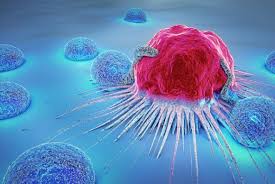| Pinpointing the exact cause of pancreatic cancer in each individual is challenging. However, research has identified several factors that significantly increase a person's risk of developing this disease. 
Why is Pancreatic Cancer so scary?Pancreatic cancer is a formidable disease due to its typically late diagnosis, often in advanced stages when treatment options are limited and less effective, coupled with its aggressive nature and resistance to many forms of chemotherapy and radiation, leading to poor prognosis and high mortality rates. Demographics and Genetics- Age: The risk of pancreatic cancer increases significantly with age. Most cases are diagnosed in individuals over 50 years old.
- Sex: Men are approximately 30% more likely to develop pancreatic cancer compared to women.
- Race/Ethnicity: African Americans have a higher incidence of pancreatic cancer compared to white Americans or Asian Americans.
- Family History: An inherited predisposition contributes to an estimated 5-10% of pancreatic cancer cases.
Lifestyle Factors- Smoking: Cigarette smoking is a well-established risk factor for pancreatic cancer.
- Diet: A diet high in red and processed meats, and saturated fat has been linked to an increased risk of pancreatic cancer.
Medical Conditions- Diabetes Mellitus: Individuals with diabetes, particularly those with long-standing diabetes, have an elevated risk of developing pancreatic cancer.
- Chronic Pancreatitis: Long-term inflammation of the pancreas (chronic pancreatitis) is associated with an increased risk.
How to avoid Pancreatic Cancer? Is that possible?While there's no guaranteed way to completely avoid pancreatic cancer, you can significantly lower your risk by making healthy lifestyle choices and managing certain risk factors. Here's a breakdown: What Increases Your Risk (Risk Factors You Can Potentially Modify)- Smoking: This is the biggest modifiable risk factor. Smokers are two to three times more likely to develop pancreatic cancer than non-smokers. Quitting smoking is the most important thing you can do to reduce your risk.
- Obesity and Unhealthy Diet: Being overweight or obese, especially having excess abdominal fat, increases your risk. A diet high in red and processed meats, fried foods, and sugars is also linked to higher risk.
- Diabetes: Long-standing diabetes, particularly type 2, is associated with an increased risk of pancreatic cancer. Managing your blood sugar levels through diet, exercise, and medication (if prescribed) is crucial.
- Chronic Pancreatitis: Long-term inflammation of the pancreas increases the risk. Avoiding alcohol and managing gallstones (which can cause pancreatitis) are important.
- High Alcohol Consumption: Heavy drinking is associated with an increased risk of pancreatic cancer, partly because it can lead to pancreatitis.
- Exposure to Certain Chemicals: Exposure to certain pesticides, dyes, and chemicals in the workplace may slightly increase risk.
- Physical Inactivity: Regular physical activity is linked to a lower risk of several cancers, including pancreatic cancer.
Risk Factors You CANNOT Change- Age: The risk of pancreatic cancer increases with age. Most cases are diagnosed in people over 65.
- Race: African Americans have a higher risk of pancreatic cancer than other racial groups in the U.S. The reasons for this are not fully understood but likely involve a combination of genetic, lifestyle, and socioeconomic factors.
- Family History: Having a family history of pancreatic cancer increases your risk. This is especially true if multiple close relatives have had the disease.
- Genetic Syndromes: Certain inherited genetic syndromes, such as BRCA1, BRCA2, PALB2, Lynch syndrome, and Peutz-Jeghers syndrome, are associated with a higher risk.
- Gender: Men are slightly more likely to develop pancreatic cancer than women.
Strategies to Reduce Your Risk- Quit Smoking: This is the single most impactful step you can take. Seek support from your doctor, support groups, or smoking cessation programs.
- Maintain a Healthy Weight: Aim for a healthy body mass index (BMI) through a balanced diet and regular exercise.
- Eat a Healthy Diet: Focus on fruits, vegetables, whole grains, and lean protein. Limit red and processed meats, sugary drinks, and highly processed foods.
- Manage Diabetes: If you have diabetes, work closely with your doctor to control your blood sugar levels.
- Limit Alcohol Consumption: If you drink alcohol, do so in moderation (up to one drink per day for women and up to two drinks per day for men).
- Be Physically Active: Aim for at least 150 minutes of moderate-intensity aerobic activity or 75 minutes of vigorous-intensity aerobic activity per week, plus muscle-strengthening activities on two or more days per week.
- Consider Genetic Counseling: If you have a strong family history of pancreatic cancer or certain genetic syndromes, talk to your doctor about genetic counseling and testing. This can help you understand your risk and potentially explore screening options.
- Talk to Your Doctor About Screening (if appropriate): For individuals with a very high risk of pancreatic cancer (e.g., those with certain genetic mutations or a strong family history), some medical centers offer screening programs. However, screening for pancreatic cancer in the general population is not recommended because there is no evidence that it reduces the risk of dying from the disease and it can lead to unnecessary testing and anxiety.
Important Considerations to avoid Pancreatic Cancer- No Guarantees: Even with these measures, there's no guarantee you won't develop pancreatic cancer. Risk reduction is about lowering your chances, not eliminating them entirely.
- Early Detection: Pancreatic cancer is often diagnosed at a late stage, making it more difficult to treat. Be aware of potential symptoms such as abdominal pain, jaundice (yellowing of the skin and eyes), weight loss, loss of appetite, and changes in bowel habits. If you experience these symptoms, see your doctor promptly.
- Research is Ongoing: Researchers are constantly working to learn more about pancreatic cancer and to develop new prevention and treatment strategies.
Tags: Chronic Pancreatitis Diabetes Mellitus Family History Pancreatic Cancer Pancreatic Cancer Causes Pancreatic Cancer Risk Risk Factors Smoking And Cancer  
|
 1,451
1,451  0
0  0
0  3350
3350 